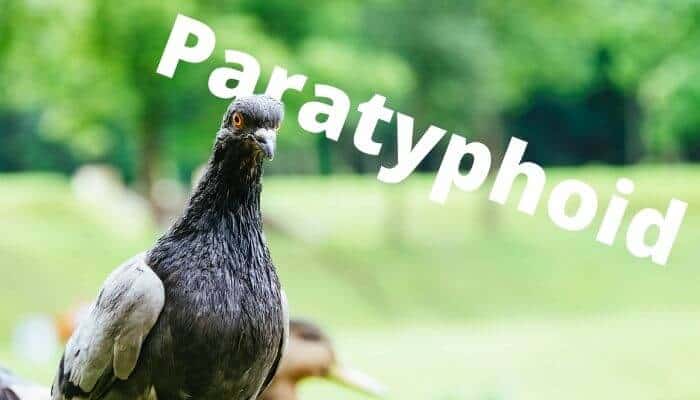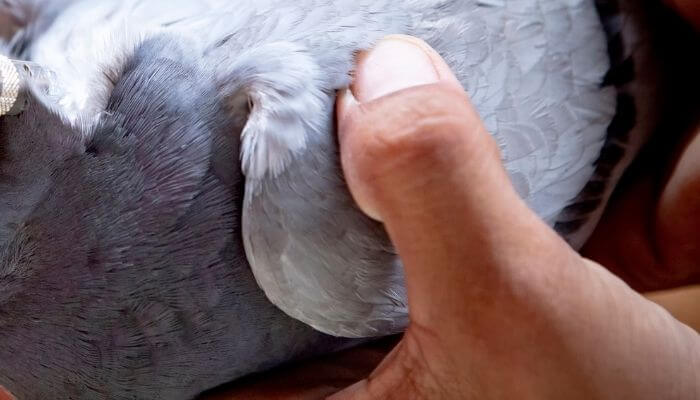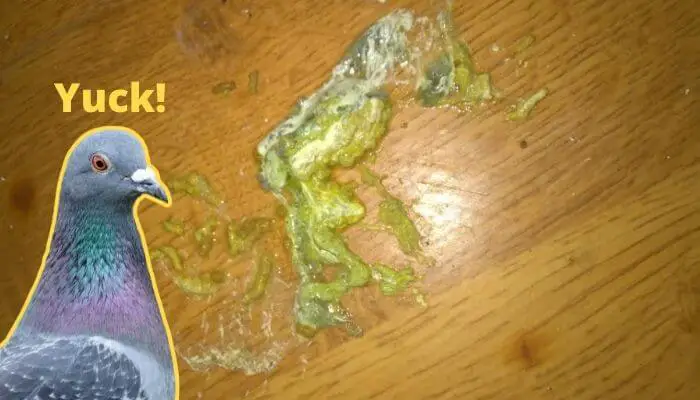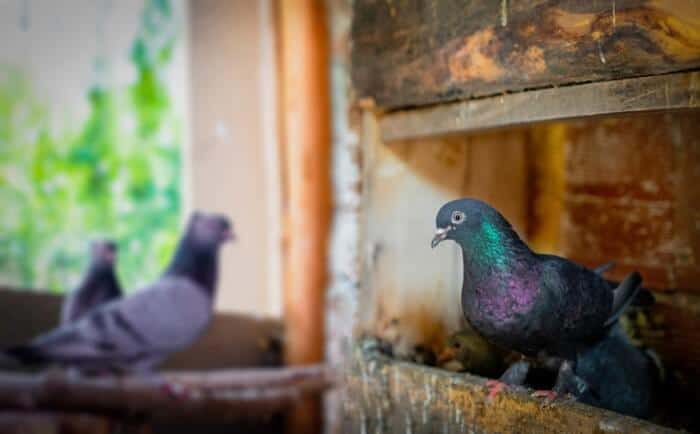The color of your pigeons’ feces (guano) is important as it can tell you whether your birds are potentially suffering from disease and if you should call your avian veterinarian.
If you’ve noticed that your pigeon’s droppings have become yellow in the past few days, that could be a reason to feel a little worried.
Check out some of the possible causes of yellow pigeon poop, how it can be diagnosed, treated, and whether this mishap can be prevented – find out everything you need to know below.
What Causes Yellow Poop In Pigeons?
Since this is merely a symptom and not a condition in itself, we cannot tell you the exact cause of yellow droppings in birds.
There could be a number of reasons why this might happen, from exposure to a toxic substance, which has led your pigeons’ liver and gallbladder to function differently, to a significant change in their diet.
Some foods, such as fresh carrots and other veggies and fruit, can modify the color and even the texture of your flock’s droppings.
But yellow poop could also be a sign of an actual infectious condition. One of the most common diseases that cause this symptom in birds is salmonellosis (aka paratyphoid).

Pigeons can suffer very violent and sudden salmonellosis outbreaks, which can lead to the death of multiple birds in a flock.
Many people who care for pigeons decide to give them antibiotics or anti-infectious medications through their water or food on a regular basis just to prevent such outbreaks.
Besides the yellow poop, salmonellosis can cause other symptoms, such as the following:
- Weight loss
- Excessive thirst
- Lameness
- Frequent droppings
- Inability to fly
Due to watery diarrhea, the birds can quickly become dehydrated, so salmonellosis can be life-threatening.
There are specific drugs that can treat salmonellosis outbreaks, but you should contact your veterinarian right away if you see that your pigeons have watery diarrhea and it is yellow and might have streaks of blood in it, too.

This article was written by our qualified veterinarian Cristina.
This is part of our commitment to providing you with the most trustworthy veterinary advice for your pigeons.
How Is Yellow Poop Diagnosed As A Disease?
Once again, this is a symptom, not a condition, which means that the vet needs to rely on a wide variety of diagnostic tests to identify the actual cause of this clinical sign.
A pathologist might come to one conclusion based on the clinical picture, but if a bacterial disease is involved, your pigeons should receive specific treatment rather than getting a broad medication that can treat several different conditions.
Antibiotic resistance is a very big problem for doctors and veterinarians these days, and that’s because lots of animal owners decide to treat their birds without consulting a specialist.
As such, they might give them broad-spectrum antibiotics even if they don’t have a disease produced by a pathogen that might or might not respond to the treatment.
One of the most useful tests that vets can use to diagnose the health issue that the pigeons are suffering from is a fecal exam.

A fecal exam can be utilized for determining whether the birds have internal parasites.
On the other hand, the same sample can be used for the diagnosis of pathogens present in the droppings.
A small amount of feces is mixed with a solution and placed on a growth medium such as agar or broth. Then, this mixture is stored at 37 degrees Celsius for a couple of days to ensure that the bacteria have the opportunity to multiply.
Then, the pathogens are examined under the microscope, and based on the features, they are identified as being part of a specific family.
Following this test, the microbiologist will proceed to perform an antibiogram. This is a process where some bacterial samples are placed on a Petri dish, and miniature antibiotic pills are located all across the surface.
The antibiogram is the only test that can reveal the specific treatment that your pigeons should be administered.
Can Yellow Poop Be Treated?
It depends on the exact cause that has led to this clinical sign.
Parasites and any similar reasons can be decimated by using the appropriate medication, subscribed by your veterinarian.
If your pigeons were exposed to a toxic substance and the yellow droppings are the result of severe liver damage, your vet might or might not be able to save them.
It all depends on how bad the intoxication case is, which is something that comes from the amount of said substance ingested by your pigeons and their overall health status (which can influence how their bodies react to such abuse).

If the vet determines that salmonellosis is at the root of the problem, your pigeons will be prescribed an antibiotic.
One very common medication that vets recommend for treating this disease is Florfenicol, an anti-infectious product that proves to be quite effective in just a couple of days.
If your pigeons manage to recover in 2-3 days’ time, that doesn’t mean that you should stop giving them the medication.
They have to be given the treatment for the entire duration recommended by your vet, which can be anything between 5 and 10 days, depending on the severity of the infection.
How To Prevent It
Because pigeons can catch salmonella from feral pigeons, there really is no way of effectively preventing this bacterial disease.
But severe salmonellosis tends to show up in outbreaks that are the consequence of poor hygiene and overpopulation.
If your living enclosure isn’t large enough for the number of pigeons you own and care for, they will live too close together.
Therefore, the risk of them coming in close contact not only with one another but also with their body fluids (including their droppings) is much higher.
Cleaning their living space on a regular basis is a very good idea.

It can be a challenge to have to clean it every morning, but such a routine is usually very effective when it comes to preventing bacterial diseases in pigeons.
Once a week, you should take the pigeons out and do a thorough clean-out, where you not only clean the feces and any messes from the floor/walls of the enclosure, but also use a disinfectant like chlorine, for example.
Let the living space air out for a couple of hours before allowing your pigeons to go in again.
Yellow pigeon poop is a problem that could be more prevalent during the winter, mainly because cleaning out the birds’ living spaces in that season is even more difficult.
Resources:
- Effect of formaldehyde and urea contaminated feed exposure into the liver of young and adult pigeons (Columba livia), Imam Hasan et al, 2021
- Fenbendazole and albendazole toxicity in pigeons and doves, Lauren L. Howard et al, 2002
- Feral pigeons: A reservoir of zoonotic Salmonella enteritidis strains?, Roel Haesendonck et al, 2016
- Therapy of pigeon salmonellosis with consideration of the resistance test, W. Lutghen et al, 1969
